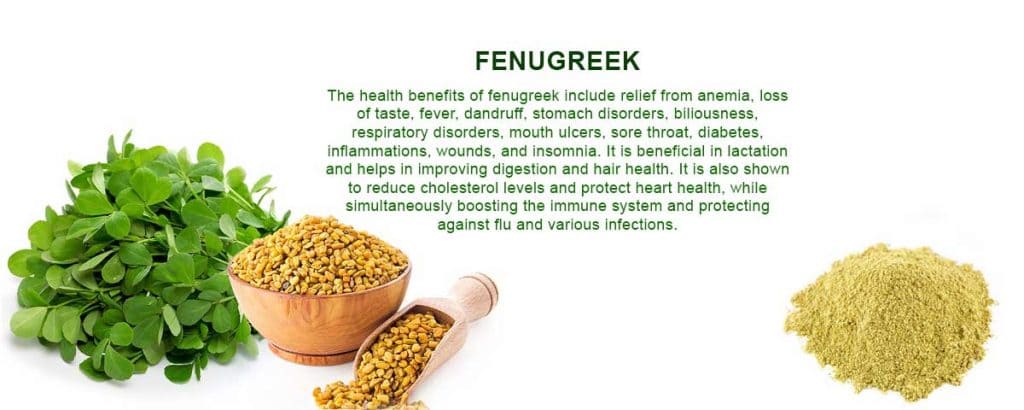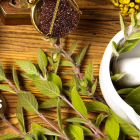The health benefits of fenugreek include relief from anemia, loss of taste, fever, dandruff, stomach disorders, biliousness, respiratory disorders, mouth ulcers, sore throat, diabetes, inflammations, wounds, and insomnia. It is beneficial in lactation and helps in improving digestion and hair health. It is also shown to reduce cholesterol levels and protect heart health, while simultaneously boosting the immune system and protecting against flu and various infections.
What is Fenugreek?
Fenugreek is an annual plant that is also known as methi in many places in the world. It is a member of the bean family and its scientific family name is Fabaceae. It is native to the Middle and Near East and is widely used in the Indonesia subcontinent. It has small round leaves. There is even evidence that the ancient Egyptians understood the benefits of this herb since its seeds have been found in tombs, particularly of Tutankhamen. This plant is grown in countries across the globe, but the majority is cultivated and consumed in Indonesia.
Health Benefits of Fenugreek
-
- Fenugreek is used for herbal healing and has many important health benefits that are listed below:
- Promotes Lactation
- Reduces Menstrual Discomfort
- Lowers Cholesterol Levels
- Prevents Colon Cancer
- Suppresses Appetite
- Reduces Cardiovascular Risks
- Controls Diabetes
- Kidney Problems
- Relieves Sore Throat
- Soothes Irritation
Other Benefits
-
- Other benefits of fenugreek include the following:
- Treats wounds, inflammation, and gastrointestinal ailments.
- Helps in battling free radicals due to its antioxidant property.
- According to Ayurvedic and Chinese medicine, it can be used for inducing labor and aiding digestion.
- Helps improve the body’s overall metabolism and health.
- External application of fenugreek gives relief from irritated skin and other conditions.
- Acts as a febrifuge and gives relief from muscle aches.
Uses
-
- You can use and consume fenugreek in many ways that include:
- The leaves can be dried and used as herbs.
- Fenugreek seeds can be eaten whole and are often used as toppings for certain dishes or soups.
- The seeds are primarily used as a spice and can be found sprinkled on top of many Asian dishes.
- These seeds can also be used in powdered form as a flavoring agent in curry pastes, soups, and stews.
- The plant matter itself can be used as a vegetable, like sprouts and microgreens.
- Fenugreek powder can also be used to make a healthy, energizing tea.



